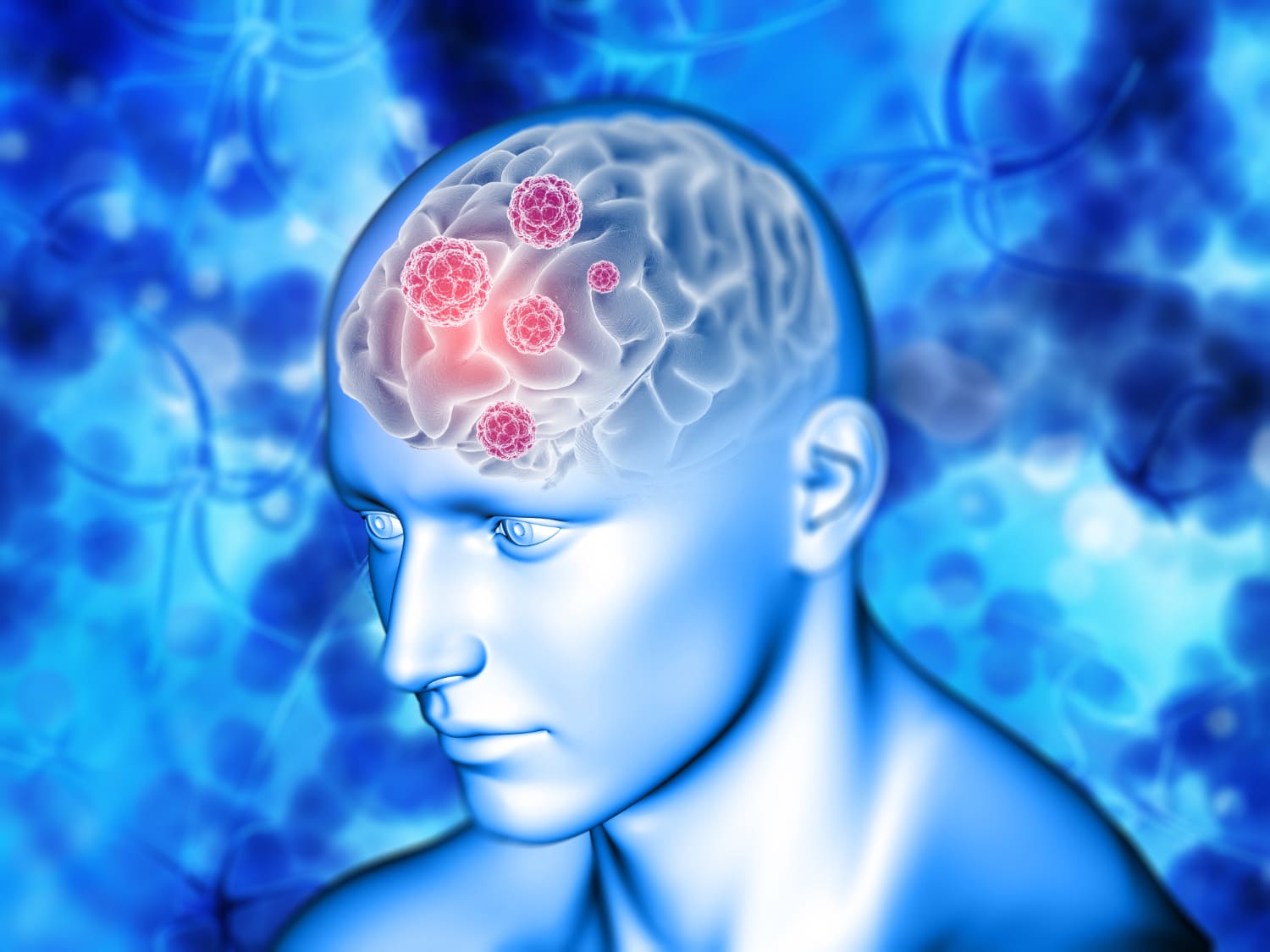
Are you suffering from long-term symptoms after a concussion or TBI (traumatic brain injury)? If so, you know how miserable they can be: headaches, dizziness, nausea, memory problems, and more.
And while these symptoms can resolve over time with a mild concussion, sometimes they are more severe. In that case, they don’t improve despite therapy and medications.
If you’re in that situation, perhaps you need a new solution. We’re proud to offer that solution: MeRT, or Magnetic e-Resonance Therapy. It’s drug-free, non-invasive, and lasting. And it can help you overcome the painful, debilitating symptoms of traumatic brain injury.*

MeRT is a breakthrough protocol that combines comprehensive diagnostic testing with non-invasive treatment to restore balance to the brain.
The qEEG (quantitative electroencephalogram) is the key to MeRT’s success. Also called brain mapping, the qEEG can show any imbalance in brainwave activity.
Studies have shown that patients with concussions or Traumatic Brain Injury have clearly visible markers in their EEG studies. The EEG will show the imbalance in brain function, which will be different for each person.
Then, through a highly personalized treatment plan using transcranial magnetic stimulation (TMS) and the results of the qEEG, we strengthen healthy brainwave activity.
Once we discover the brainwave imbalance, we develop a personalized treatment plan using transcranial magnetic stimulation (TMS) to strengthen healthy brainwave activity. This can greatly improve recovery and decrease symptoms.*

“What we’re finding is that the brain responds to insult the same way, whether it’s chronic sleep deprivation, the mechanical injury of head-to-head contact repeatedly on a football field, or being exposed to repeated blast injuries in the military or direct contact with IEDs. The brain seems to respond to these injuries the same way.”
“For so many years, there’s been this feeling of helplessness that concussions are just a fact of life and there’s not a lot that we can do. I think we’re starting to get down to, at a foundational level, the root cause of mechanisms of injury, which will lead us down the pathway of finding solutions.”
DR. ERIK WON, PRESIDENT AND CHIEF MEDICAL OFFICER OF WAVE NEUROSCIENCE, ON THE BROKEN BRAIN PODCAST

A TBI or concussion is an injury to the brain, caused by a violent blow or jolt to the head or body. Some of the most common ways to get a TBI are falls, firearm-related injuries, car or motorcycle crashes, or assaults.
This type of brain injury can be hard to diagnose, as your symptoms can range from mild to severe. In milder cases, you may have only a brief change of mental state. Additionally, you can have a mild TBI and not experience loss of consciousness. (In moderate to severe cases, loss of consciousness usually occurs.)
When you receive a TBI, your brain can bounce around or twist in the skull. This can also cause chemical changes in your brain or brain cell damage. And a TBI, if severe, can cause health problems that may last for years—or a lifetime—without proper treatment.
Symptoms of a TBI can vary based on the severity of the injury. Some of the more common symptoms include:

If left untreated, a traumatic brain injury can lead to a shortened life span and significant complications.
But there is hope. MeRT treatment can greatly reduce symptoms and help improve mood, cognitive abilities, sleep quality, and much more.*
* Results are based on active and strict observation of our regimens. Results may vary based on the individual user and are not guaranteed.
As MeRT is a relatively new treatment, you may have many questions as to whether it’s the right treatment for your traumatic brain injury. We know this isn’t a light decision, and we understand. That’s why your first step is to get all the information you need so you can make an informed decision. And that’s as simple as a free phone consultation with our New Patient Coordinator.
In this consultation, she will discuss your symptoms and history. She’ll also answer any questions you have and explain the treatment in full, including all fees and protocols.
Then, once you decide to take the next step, we will set up two separate appointments, one for testing and one for consultation. Each of these appointments will last 45 minutes to an hour. After these first two appointments, you will have an assessment period where the actual procedure and monitoring take place.

Your first appointment will consist of two simple tests, a qEEG and an EKG. These tests are easy, painless, and performed right in our office. For the EEG, we place a cap on your head to measure the electrical activity in your brain and map out any areas not performing as they should. We also perform an EKG to record your heart’s electrical signals.
Once we perform these tests, our team will carefully analyze the results. Based on this analysis, we develop a treatment plan customized to your specific condition and schedule your assessment period of treatment.

After your tests are complete and we’ve reviewed and analyzed them, you will have a one-on-one consultation. You can do this virtually from the comfort of your home with Dr. Kim. We will discuss your test results and treatment protocols, answer any remaining questions, and let you know more about what to expect during your assessment period.

During the two-week assessment period, we will perform a short period of treatment. This treatment will be Monday through Friday for the first week, and Monday through Friday for the second week. On Friday of the second week, we will perform another set of tests to see how you are responding. We then determine your progress based on the new EEG results compared to the initial one, as well as symptom improvements.
If we see a positive response to treatment during the assessment period, you will have likely noticed some improvements starting to take place. At that point, we will schedule additional MeRT treatment in two-week intervals.
At the end of every two weeks, we will perform a qEEG/EKG to monitor your progress; you will have a consultation to confirm that changes are still showing on the testing.
Most conditions treated with MeRT provide noticeable and long-lasting results after four to eight weeks of treatment; however, each patient is different, and results may vary.
MeRT, or Magnetic e-Resonance Therapy, uses a three-part protocol that measures, analyzes, and improves brain function. The three parts are:
This non-invasive test is also called “brain mapping.” We simply place a cap on your head to map your unique brainwaves.
While performing the qEEG, we also use an EKG to measure your heart’s electrical signals. This provides the most accurate results possible.
After analyzing your results and developing your tailored program, we place magnetic coils along your scalp to stimulate targeted brain areas.
You may still have a lot of questions about whether MeRT is the right treatment for you. And our New Patient Coordinator is here to help you! She’ll take the time to listen, answer questions, explain costs, and put your mind at ease. She can also assist you in getting scheduled should you decide to move forward with treatment.
Think of it this way: Making one free call can be the first step in freeing yourself from the symptoms of your condition.